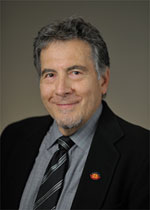 Registration is now open for the 2014 Postdoctoral Preparation Institute: Career Transitions, a workshop we’re funding for postdoctoral fellows who will soon be seeking positions in a variety of career sectors. The workshop, which is being run by FASEB, will take place near NIH on June 5-6. It follows two successful prior NIGMS postdoc workshops in 2010 and 2012.
Registration is now open for the 2014 Postdoctoral Preparation Institute: Career Transitions, a workshop we’re funding for postdoctoral fellows who will soon be seeking positions in a variety of career sectors. The workshop, which is being run by FASEB, will take place near NIH on June 5-6. It follows two successful prior NIGMS postdoc workshops in 2010 and 2012.
The meeting will cover a range of topics related to making a successful transition to the next career stage, including career planning; communication, leadership and other interpersonal skills; grant-writing; applying for positions; and navigating the interview and negotiation processes. Participants will also have an opportunity to learn about a number of scientific career options.
Among the featured speakers are NIGMS director Jon Lorsch and NIH’s first chief officer for scientific workforce diversity, Hannah Valantine.
If you know of postdocs who would benefit from this career development event, please encourage them to visit the registration page (link no longer available) for details about eligibility, travel support and application materials. Applications are due by April 18.
While the event is open to all eligible postdocs, we especially encourage applications from members of groups that are underrepresented in the biomedical or behavioral sciences. If space is available, the FASEB meeting organizers will also consider applications from new assistant professors who are within 1 year of the completion of their postdoctoral training and 5th-year Ph.D. students who are near degree conferral.


 Clifton “Clif” Poodry, Ph.D., director of the NIGMS Division of Training, Workforce Development, and Diversity, retired earlier this month. Although he’s left federal service, Clif is continuing to pursue his long-held interest in improving science education as a senior fellow at the Howard Hughes Medical Institute.
Clifton “Clif” Poodry, Ph.D., director of the NIGMS Division of Training, Workforce Development, and Diversity, retired earlier this month. Although he’s left federal service, Clif is continuing to pursue his long-held interest in improving science education as a senior fellow at the Howard Hughes Medical Institute.